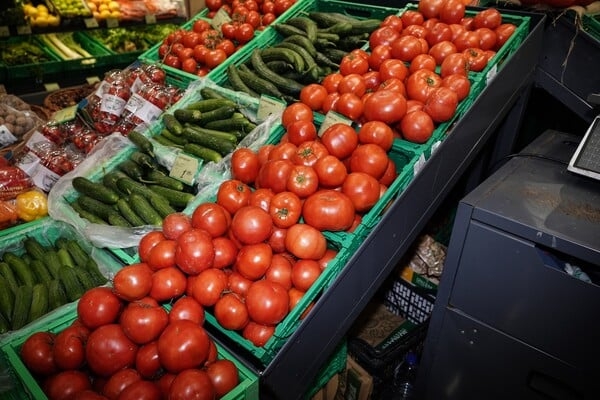According to Eurostat, the biggest problem for both Greece and the Eurozone is obviously food prices.
Food, alcohol and tobacco prices continued to rise at a double-digit pace, up 11.8% from a 12.2% increase in February. Against, decrease in inflation in Greece in March to 5.4% year on year from 6.5% in February due to falling energy prices by 14.7%.
In the Eurozone, inflation fell to 6.9% from 8.5%, while the slowdown was also driven by energy prices, which fell 0.9% from a 13.7% rise in February. Despite this, prices for food, alcohol and tobacco products continued to rise, and even faster (15.4% compared to 15% in February).
Other indicators, such as prices for non-energy industrial goods and services, rose, but significantly less than food prices (6.6% and 5%, respectively). At the same time, world food prices (at auctions, commodity exchanges) fell in March this year, for the 12th consecutive month after rising in 2021 and the first quarter of 2022.
In addition, prices for vegetable oils (47.7%), cereals (18.6%), dairy products (15.6%) and meat (5.3%) declined, and only sugar prices continued their growth, rising to highest level since October 2016.
So why are food prices rising in Greece and the Eurozone? FirstlyThe International Monetary Fund estimates that retail food prices increased by six percentage points in 2022. And this explains only part of their growth. Secondlythere is a significant time lag between increases or decreases in international retail prices, estimated by the IMF to be between 6 and 12 months.
Third, domestic prices are significantly affected by the nature of the production of various agricultural products, such as olive oil, which is produced once a year. In this way, its price on the shelf will not fall until the “new harvest” oil arrives at the end of the year. And its price will be formed under the influence of the current situation.
As for fertilizer prices, another IMF study shows that any change in them directly affects world grain prices for four quarters.







More Stories
Real estate: investment interest in private islands in Greece
Eurostat: what goods and services do Greeks purchase online?
Optimistic forecasts for the Greek economy